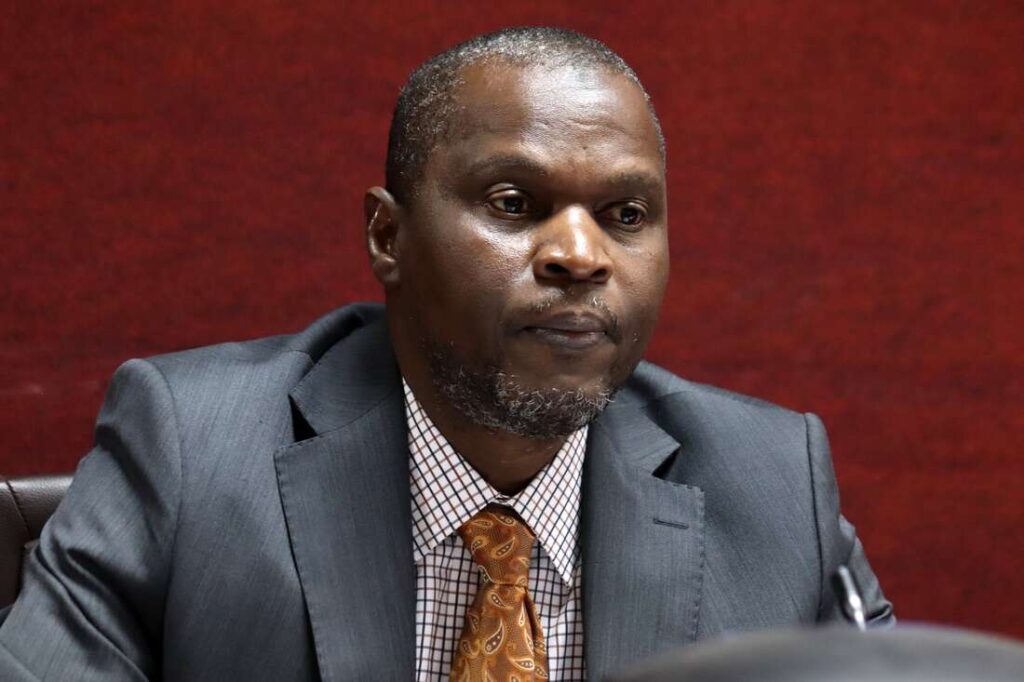
The career of Said Chitembwe as a judge of the High Court came to an abrupt rush end on Thursday after the Supreme Court upheld the decision to sack him for misconduct.
The former judge who was exposed by former Nairobi governor Mike Sonko failed to convince the Supreme Court to quash the recommendations of the Tribunal appointed to investigate his conduct.
Justices Mohamed Ibrahim, Justice Smokin Wanjala and Justice Njoki Ndungu, Isaac Lenaola and William Ouko dismissed Chitembwe’s appeal and upheld all tribunal recommendations.
“In the end and for all the reasons we have given, this Petition of Appeal fails as we are satisfied with the Tribunal’s conclusion that the evidence presented established that the petitioner’s conduct was in breach of the Code of Conduct and Ethics and also amounted to gross misconduct or misbehaviour contrary to Article 168(1) (b) and (e) of the Constitution of Kenya,” ruled the supreme court judges in their decision.
The Supreme Court judges noted that the evidence presented as captured in the Hansard of 4th November 2021, is that Chitembwe admitted that he discussed with Hon. Sonko on possible grounds of appeal after he was impeached.
“In our view, such advice, from a judge to a person who was a litigant before him in the matter, the subject of discussion and in respect of which an appeal to the Court of Appeal was contemplated, is what is prohibited by Regulations 17(3) and 18(1) of the Code of Conduct and Ethics,” said the judges.
The judges said it was their finding that the former judge engaged in the subversion of justice by commenting on pending cases and suggesting to a litigant, possible points for the challenge of the judgment.
They said his conduct, apart from being unprofessional was also unbecoming of a judge and contravened Articles 73 of the Constitution as well as Regulations 15, 16(a), (b), (c) and 17(3) of the Code of Conduct and Ethics.
“We therefore find that Allegations four and five were proved to the required standard,” said the court.
Chitembwe had filed the petition on grounds that the Tribunal lacked jurisdiction to review the Judicial Service Commission’s(JSC) proceedings and that it had not upheld the doctrine of judicial independence while investigating the allegations against him.
JUDGES INTRODUCTION OF THEIR JUDGEMENT.
In their judgement, the five bench started introduction by saying, Judges are entrusted with a significant responsibility to uphold the principles of justice and maintain the integrity of the judicial and legal system. In their everyday lives, public or private, judges are expected to exhibit the highest standards of impartiality, fairness, and ethical behavior.
They must remain unbiased and refrain from any actions or expressions that may compromise their objectivity. They must display a demeanor that commands respect and instills public confidence in the office of a judge.
Maintaining independence from external influences is crucial to ensuring the credibility of the judiciary, and judges are obligated to resist any attempts at undue influence or interference.
Transparency, diligence, and a commitment to upholding the rule of law are paramount in guiding judges in the proper conduct of their duties and fostering public trust in the legal system they represent. ARY
Although Judges have guaranteed tenure until mandatory or early retirement age, they can be removed only for reasons and through the process outlined in the Constitution and the law.
These principles are espoused not only in the oath of office of a judge but also in some of the international and regional human rights instruments which in turn are replicated in the Constitution and relevant statutes.
Those international and regional instruments include the International Covenant on Civil and Political Rights (1966), the United Nations Basic Principles on the Independence of the Judiciary, 1985 Commonwealth Principles (Latimer House), 1988, African Charter on People and Human Rights, 1981.
They added that a judge can be removed from office only on specific grounds, namely the inability to perform the functions of office arising from mental or physical incapacity; a breach of a code of conduct prescribed for judges of the superior courts by an Act of Parliament; bankruptcy; incompetence; or gross misconduct or misbehaviour.
Where any or some of these grounds are alleged, the concerned Judge is entitled to due process before an independent tribunal is appointed to inquire into the alleged grounds.
Similarly, should the tribunal recommend removal, the Judge has the right to challenge the decision of the Tribunal through an appeal process to this Court
